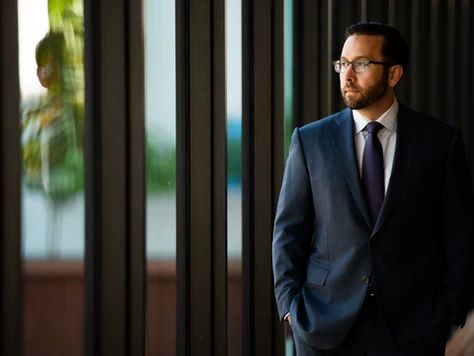In catastrophic cases, one of the hardest questions the lawyer and the client will ever face is this: “Should we settle?”
There’s no moment in life as lonely for a lawyer as when the client in a catastrophic case asks for advice on whether to settle. That is because losing a trial can mean financial, emotional, and medical devastation for them. It can mean the difference between life and death, not only for the client but for other people too. If you choose incorrectly, it can mean the company escapes punishment free to keep breaking the law – so that more people will get killed or maimed in the future.
Imagine a badly injured child with burns, infections, and amputations. Optimal medical care can give that child a shot at a decent life. The best surgical revisions for scarring, the most advanced prosthetics each year as she grows, the best physical therapy individual tutoring, and special opportunities that allow life in the world instead of human warehousing in an institution.
But optimal medical care often requires getting a verdict. Settling before trial almost always means settling for less. The horrible choice parents end up facing is this: accept suboptimal medical care to make sure the child lives – or push for the optimal care she needs. Knowing that it could mean total loss if the lawyer can work up the case so magnificently that the defendant must settle, they must offer to settle for enough money to pay for this optimal medical care.
The decision is easy when you can’t afford to lose, and there is an offer on the table that lets you win. You may take it, but no matter how well the case is worked, corporations that kill and maim often take advantage of the ensuing financial devastation. They use this as leverage to pressure families into settling for far less than they need. Companies can afford to take the risk of losing a trial for many reasons.
First, the global apex corporations that cause the most damage have become incredibly wealthy. Numbers that seem so big to us don’t even affect these companies financially. They don’t even notice.
Second, they have many cases they can lose. Some win or settle some, so they can afford to roll the dice – and they can use that as a weapon against desperate families who can’t afford to lose. That’s why I say that defendants choose which cases I try. If they offer enough to protect the family, the family always accepts with great relief. But if the company tries to muscle us or thinks it can get away with the crime because of some difficulty I have in presenting the case, then what choice do we have?
All of my biggest victories – with one exception – happened this way. We were forced into the courtroom by the company. That one exception is worth mentioning, though.
There are times when there is a matter of principle that must be vindicated. In one case, we were close to exposing a massive corporate coverup. This would likely force a design change and save lives in the future. The court ordered the secret documents produced and made public, and the defendant would’ve paid $50 million to keep those documents secret. The family refused.
Sometimes the truth must come out. You have to do the right thing when other lives are at stake. Indeed, the exposure of the documents, the size of the verdict, and the ensuing publicity forced that company and other companies to make real changes. Countless lives were saved. Some cases cannot be settled out of principle, but almost always, it’s the defendants who force us into the courtroom and into a terrifying risk that we cannot afford. At that point, the lawyer must do whatever it takes to deliver.
That’s why we have written on the wall. We see it every day when we come to work. To stand and not to yield, no matter the odds. It’s hard to describe the emotion in these situations when we can’t afford to lose, but the company forces us to trial. In cases like that, just before the clerk reads the verdict, the world fades away. There’s nothing lonelier than a lawyer and their client at that moment.
So, to lawyers trying to decide what to do in this profoundly difficult situation. First, when you can’t afford to lose, work like hell to get an offer on the table that lets your client win. Second, when you have an offer that lets you win, take it. Don’t worry about what you could have gotten. That’s a risk you can’t afford. Third, when you have no choice, either because a powerful defendant is trying to muscle you or because there is some higher principle to vindicate, you must stand and deliver.


